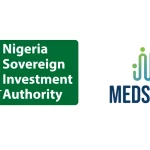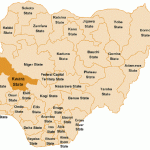Health
Appraising and Re-tooling Nigeria’s Public Health Delivery Model in the Post COVID-19 Era
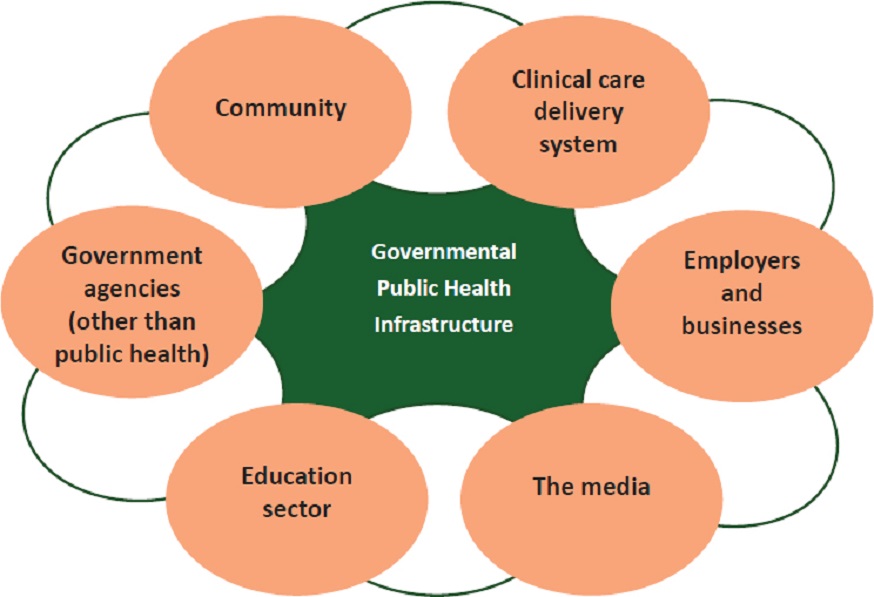
By Christopher Samuel
That the ravaging COVID-19 which has since the beginning of the year spread rapidly around the globe could leave a very serious public health crisis in its wake is no longer news.
In many parts of the world, attention is shifting to how to concretize local, regional and continental health partnerships that focus on not just how to successfully contain or tackle the virus, but, more importantly, to ensure that life-saving and essential health delivery services are sustained and maintained to entrench a robust system that maximizes the learnings gained from the current pandemic.
Like other developing countries, Nigeria now, more than ever before, has to seriously confront the challenge of creating a modern health services delivery system that guarantees efficient, fast and accessible solutions capable of curtailing fatalities associated with common diseases and their devastating impact on families, communities, and development.
While speaking recently on the threat of malaria in the country, the Minister of Health, Dr Osagie Ehanire, revealed that “though fever testing amongst children under 5 has increased consistently from 5% in 2010 to 11% in 2013, to 13% in 2015 and 14% in 2018, it is still very low when compared with the second objective of the Malaria Strategic plan which is to test all care-seeking persons with suspected malaria using RDT or microscopy.”
According to the World Malaria Report, Nigeria still accounts for 25% of the global malaria burden and 19% of global malaria deaths. Nigeria, it is estimated accounts for 81,640 annual malaria deaths – about 9 deaths per hour – and the situation is worsened by very low levels of investment in malaria elimination at both the sub-national levels and the private sector.
Apart from the frightening mortality and morbidity data on malaria, lack of access to functional health services delivery system has also been responsible for avoidable havoc caused by many other common but potentially deadly illnesses, such as STDs, diarrhoea, hypertension, and diabetes on a large segment of the 52% of the country’s population that lives in the rural areas.
To compound the situation, the country’s rural areas mostly lack good and functional infrastructure while the unavailability of competent healthcare personnel, coupled with high levels of poverty and illiteracy continue to make public health a daunting task in the country
Despite the country’s strategic position in Africa, it is highly underserved in the health care delivery sphere. Health resources such as facilities, personnel and medical equipment are inadequate, especially in rural areas.
Latest data from a survey of Africa’s 10 largest economies show that only Ethiopia has fewer hospital beds per capita than Nigeria. The most recent WHO data puts the number of hospital beds at only five per 10,000 people in Nigeria.
Beyond hospital beds, however, public healthcare delivery is hampered more by the inadequacy of healthcare resources particularly personnel, drugs and other medical equipment needed for holistic patient treatment.
For instance, the doctor to patient ratio is currently 1:6000. Most of the available qualified doctors are concentrated in urban cities and towns while the rural areas have next to nothing, thereby leaving room for quacks and other unqualified hands to tend to citizens’ health needs.
This poor picture makes the healthcare system particularly fragile and always at major risk of being overwhelmed at the breakout or in the aftermath of any pandemic with a serious presence in the country.
Yet, as an important element of national security, the need for public health is non-negotiable. Public health not only functions to provide adequate and timely medical care but also tracks, monitors, and controls disease outbreaks.
The Nigerian health care environment has suffered several infectious disease outbreaks year after year. Hence, there is a need to tackle the problem decisively now in order to forestall a repeat of the chaotic national response to the COVID-19 pandemic.
While the government has regularly come up with reforms to address the wide-ranging issues in the health care system, implementation has sadly been poor.
According to the 2009 communique of the National Health Conference, health care system remains weak as evidenced by lack of coordination, fragmentation of services, the dearth of resources, including drug and supplies, inadequate and decaying infrastructure, inequity in resource distribution, lack of access to care and a very deplorable quality of care. The communique also pinpointed a lack of clarity of roles and responsibilities among the different levels of government to have compounded the situation.
To further underline the fact that the Nigerian health care system is poorly developed, experts have often observed that there are no discernible and well maintained adequate and functional surveillance systems in the sector.
A successful modern-day health care delivery model requires routine surveillance and medical intelligence as the backbone of the health sector. This is because medical intelligence and surveillance represent a very useful component in the health care system and control of diseases outbreak.
The provision of timely information aimed at combating possible health menace among many other things is an important function of public health.
Hence, inadequate tracking techniques in the public health sector can lead to huge health insecurity, and thereby endanger national development, peace, and security.
There is, therefore, an increasing role of automated-based medical intelligence and surveillance systems to complement the traditional manual pattern of document retrieval in an advanced medical setting as seen in western and European countries.
Given the above prognosis, the primary challenge confronting the country’s public health today could, therefore, be framed as how to create and sustain an information-rich and patient-focused health care system that reliably delivers high-quality care.
Learning from experience is crucial, both for effective emergency response and to rebuild for the future.
Past experiences have shown that in the wake of health pandemics, the government has often been discovered to have diverted statutory health budget and resources to tackle the immediate challenge of the pandemic. This often leaves the healthcare services delivery sector more fragile, weaker and more overwhelmed, especially in the efforts to contain common citizen health needs.
For instance, in the aftermath of the Ebola crisis, many people died because of the inability of the overwhelmed health systems to treat malaria, HIV, and tuberculosis than from Ebola itself.
A similar trend can only be avoided in the aftermath of this fight against COVID-19 if efforts are geared towards putting in place a proactive, revolutionary and easily affordable and accessible health services delivery the model that can ride on the strong deployment of technology to strengthen healthcare accessibility at the grassroots.
Nigeria needs to urgently come up with an innovative approach to creating different layers of health services delivery model that can deliver effective and efficient medical services to the most vulnerable in society, to achieve the best health outcomes, such that location and socio-economic status will not be a barrier to accessing quality healthcare services. This need to also be done as cheaply as possible, given the dwindling economic fortunes of the country.
In this regard, the country needs to look towards the innovative and revolutionary community health hub idea which is capable of leveraging technology to offer a holistic solution to the identified gaps in the existing healthcare delivery systems, particularly in the underserved areas, as a way of maximizing the scarce human resources for health (HRH).
The best of this community health hub ideas is grounded on tele-healthcare model and not the anachronistic brick and mortar community healthcare facility model.
The growing popularity, spread, reach and utility value of mobile telephony and other digital devices should challenge health administrators and service providers to think out of the box in coming up with solutions that can deliver efficient health services to the majority of Nigerians, especially in the lower socio-economic cadre.
The current pandemic has demonstrated the central importance of health in our national life — without it, we have nothing. It has also shown how we can do things differently as regards to making our public healthcare system truly patient-focused.
We should not expect the world to stand still for us to move at a pedestrian pace when everybody else is sprinting to make their systems better.
Christopher Samuel is the Project Coordinator for Telehealth Nigeria Initiative (TENI) based in FCT, Abuja.
Health
Polaris Bank Sponsors Free Breast, Prostate Cancer Screenings
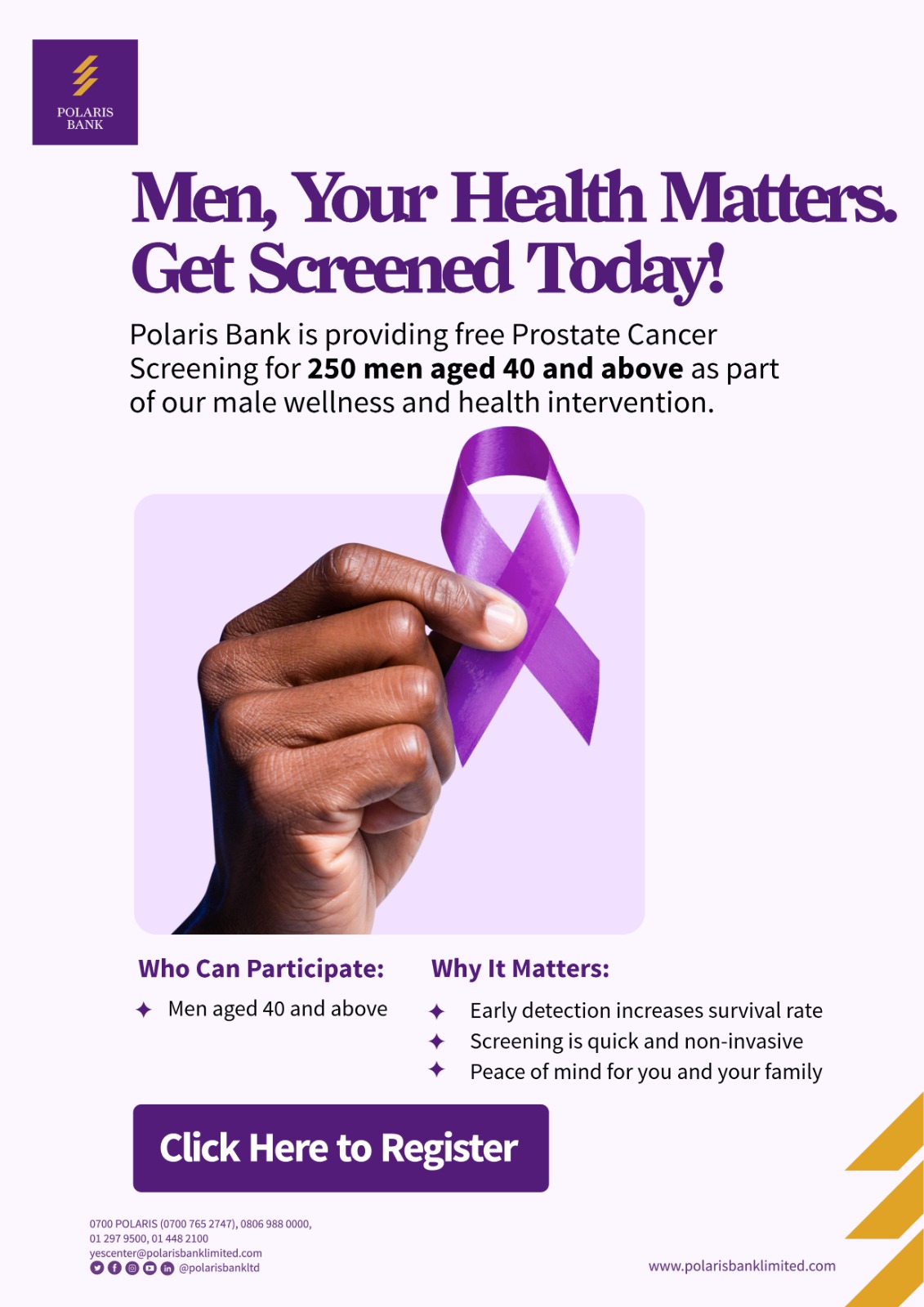
By Modupe Gbadeyanka
To commemorate World Cancer Day observed on Wednesday, February 4, 2026, Polaris Bank Limited is bankrolling free screenings for breast and prostate cancers across the country.
The financial institution partnered with a non-governmental organization (NGO) known as Care Organization and Public Enlightenment (COPE) for this initiative.
At least 100 women would be screened during the exercise, scheduled for Saturday, February 21, 2026, at the C.O.P.E Centre on 39B, Adeniyi Jones Avenue, Ikeja, Lagos, from 10:00 am to 2:00 pm.
The exercise will be conducted by trained health professionals and volunteers, ensuring participants receive both screening services and educational guidance on cancer prevention, self-examination, and follow-up care.
To participate in the free breast cancer screening programme, the applicants must be women, must be Polaris Bank account holders, and must have registered ahead of the day via bit.ly/BCS2026, with selection based on early and confirmed submissions.
Polaris Bank said the initiative was designed to promote awareness, screening, early detection, and preventive care, reinforcing its belief that access to health services is a critical foundation for individual and economic well-being.
The organization is already supporting an on-going free prostate cancer screening programme for 250 men aged 40 years and above across Nigeria.
The prostate cancer screening is being conducted at the Men’s Clinic, situated at 18, Commercial Avenue, Sabo, Yaba, Lagos, providing accessible, professional medical support for male participants seeking early detection and preventive care for prostate cancer.
Both initiatives (free breast and prostate cancer screenings) directly aligns with the United Nations Sustainable Development Goals, particularly SDG 3 (Good Health and Well-being) through improved access to preventive healthcare and early detection services, SDG 5 (Gender Equality) by prioritizing women’s health and empowerment, and SDG 17 (Partnerships for the Goals) through strategic collaboration with civil society organizations such as C.O.P.E to deliver community-centered impact.
Educational materials, community engagement sessions, and digital awareness campaigns will be deployed to reinforce key messages around early detection, lifestyle choices, and the importance of regular medical check-ups.
The Head of Brand Management and Corporate Communications for Polaris Bank, Mr Rasheed Bolarinwa, emphasised that early detection remains one of the most effective tools in the fight against cancer.
Health
NSIA Gets IFC’s Naira-financing to Scale Oncology, Diagnostic Services
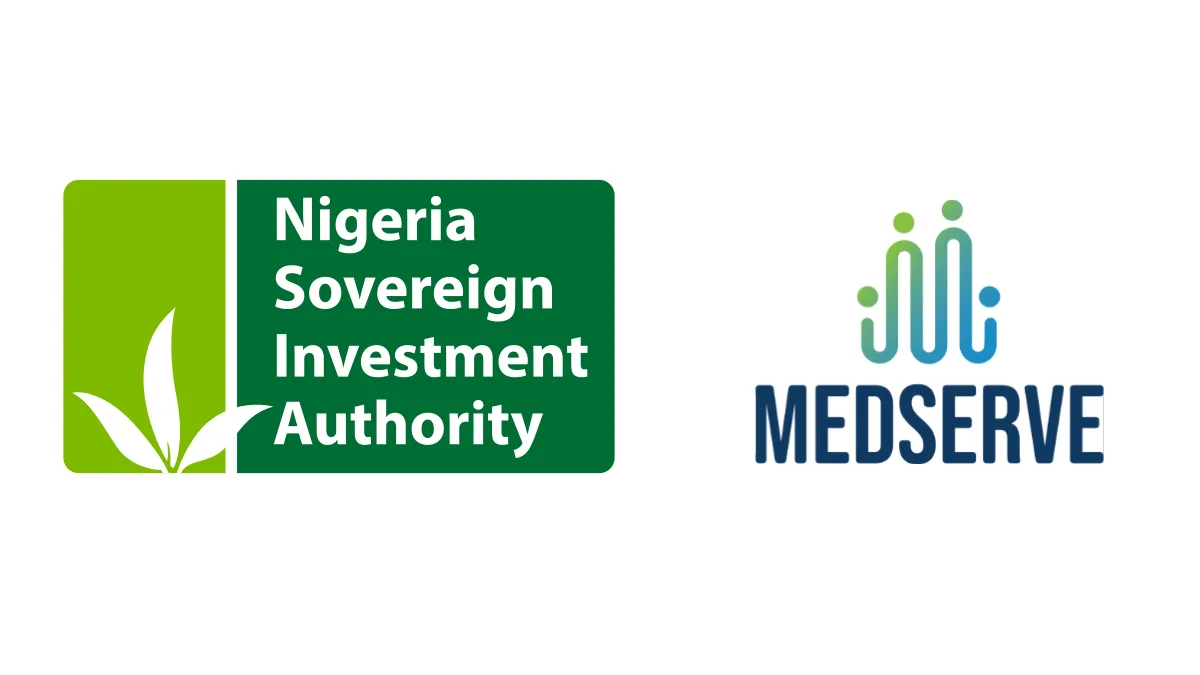
By Adedapo Adesanya
International Finance Corporation (IFC), a subsidiary of the World Bank, and the Nigeria Sovereign Investment Authority (NSIA) have partnered to provide Naira-denominated financing to NSIA Advanced Medical Services Limited (MedServe), a wholly owned healthcare subsidiary of the country’s wealth fund.
Supported by the International Development Association’s Private Sector Window Local Currency Facility, this financing enables MedServe to scale critical healthcare infrastructure while mitigating foreign exchange risks. IFC is a member of the World Bank Group.
The funds will support MedServe’s expansion program to establish diagnostic centers, radiotherapy-enabled cancer care facilities, and cardiac catheterisation laboratories across several Nigerian states.
These centres will feature advanced medical technologies, including CT and MRI imaging, digital pathology labs, linear accelerators, and cardiac catheterisation equipment, thereby enhancing specialised diagnostics and treatment.
MedServe provides sustainable service delivery with pricing that matches local income levels, helping ensure broader access to affordable oncology care for low-income patients.
The initiative will deliver over a dozen modern diagnostic and treatment centers across Nigeria, create 800 direct jobs, and train more than 500 healthcare professionals in oncology and cardiology specialties.
The total project size is $154.1 million, with IFC contributing roughly N14.2 billion ($24.5 million) in long-tenor local currency financing, marking IFC’s first healthcare investment in Nigeria using this structure.
This comes as Nigeria advances its aspirations for Universal Health Coverage. This partnership provides an opportunity to leverage private investment to complement government efforts to expand oncology care and diagnostic services.
IFC’s provision of long-tenor Naira financing addresses a significant market gap and unlocks institutional capital for healthcare infrastructure with strong development upside while MedServe’s co-location strategy with public hospitals maximises capital efficiency and strengthens the public-private ecosystem, establishing a replicable platform for future investment.
“This partnership with IFC represents a significant milestone in NSIA’s commitment to strengthening Nigeria’s healthcare ecosystem through sustainable, locally anchored investment solutions,” said Mr Aminu Umar-Sadiq, managing director & chief executive of NSIA.
He added, “By deploying long-tenor Naira financing, we are addressing critical infrastructure gaps while reducing foreign exchange risk and ensuring that quality diagnostic and cancer care services are accessible to underserved communities. MedServe’s expansion underscores our belief that commercially viable healthcare investments can deliver strong development impact while supporting national health priorities.”
“This ambition is consistent with our broader vision for Africa, one where resilient health systems and inclusive growth reinforce each other to deliver long-term impact across the continent,” said Mr Ethiopis Tafara, IFC Vice President for Africa.
Health
Lagos Steps up Mandatory Health Insurance Drive

By Modupe Gbadeyanka
Efforts to entrench mandatory health insurance through the Ilera Eko Social Health Insurance Scheme in Lagos State have been stepped by the state government.
This was done with the formal investiture of the Commissioner for Health, Professor Akin Abayomi, and the Special Adviser to the Governor on Health, Mrs Kemi Ogunyemi, as Enforcement Leads of the Lagos State Health Scheme Executive Order and ILERA EKO Champions.
The Commissioner described the recognition as both symbolic and strategic, noting that Lagos is deliberately shifting residents away from out-of-pocket healthcare spending to insurance-based financing.
“We have been battling with how to increase enrolment in ILERA EKO and change the culture of cash payment for healthcare. Insurance is a social safety net, and this mindset shift is non-negotiable,” he said.
He recalled that Lagos became the first state to domesticate the 2022 National Health Insurance Authority (NHIA) Act through an Executive Order issued in July 2024, making health insurance mandatory. He stressed that the decision reflected the Governor’s strong commitment to healthcare financing reform, adding, “When Mr. Governor personally edits and re-edits a document, it shows how critical that issue is to the future of Lagosians.”
Mr Abayomi also warned against stigmatisation of insured patients, describing negative attitudes towards Ilera Eko enrolees as a major barrier to uptake. “If someone presents an Ilera Eko card and is treated as inferior, uptake will suffer. That must stop,” he said, pledging to prioritise insurance compliance during facility inspections. “The key question I will keep asking is: ‘Where is the Ilera Eko?’”
In her remarks, Mrs Ogunyemi, said the enforcement role goes beyond a title, stressing that the health insurance scheme is now law.
“This is about Universal Health Coverage and equitable access to quality healthcare for everyone in Lagos State,” she said, noting that ILERA EKO aligns with the state’s THEMES Plus Agenda.
She commended the Lagos State Health Management Agency (LASHMA) for aggressive sensitisation efforts across the state, saying constant visibility was necessary to address persistent gaps in public knowledge. “People are still asking, ‘What is Ilera Eko?’ ‘Where do I enrol?’ Those questions tell us the work must continue,” she said.
She urged all directors and health officials to mainstream Ilera Eko promotion in every programme and engagement, emphasising that responsibility for health insurance advocacy does not rest with LASHMA alone. “When people come with medical bills, the first question should be: are you insured?” she said, adding that early enrolment remains critical as premiums rise over time.
Earlier, the Permanent Secretary of LASHMA, Ms Emmanuella Zamba, said the investiture marked a critical step in positioning leadership to drive enforcement of the Executive Order across the public service.
“What we are undertaking is pioneering in Nigeria. All eyes are on Lagos as we demonstrate how mandatory health insurance can work,” she said.
Ms Zamba disclosed that enforcement nominees across Ministries, Departments and Agencies have been trained, with a structure in place to ensure compliance beyond the health sector.
According to her, “This initiative cuts across the entire public service, particularly public-facing MDAs, in line with the provisions of the Executive Order.”
She explained that the formal designation of the Commissioner and the Special Adviser as Enforcement Leaders was meant to strengthen compliance, alongside the Head of Service, while also recognising their consistent advocacy for universal health coverage. “This decoration is to amplify their roles and appreciate the leadership they have shown,” she said.
-

 Feature/OPED6 years ago
Feature/OPED6 years agoDavos was Different this year
-
Travel/Tourism9 years ago
Lagos Seals Western Lodge Hotel In Ikorodu
-

 Showbiz3 years ago
Showbiz3 years agoEstranged Lover Releases Videos of Empress Njamah Bathing
-

 Banking8 years ago
Banking8 years agoSort Codes of GTBank Branches in Nigeria
-

 Economy3 years ago
Economy3 years agoSubsidy Removal: CNG at N130 Per Litre Cheaper Than Petrol—IPMAN
-

 Banking3 years ago
Banking3 years agoSort Codes of UBA Branches in Nigeria
-

 Banking3 years ago
Banking3 years agoFirst Bank Announces Planned Downtime
-

 Sports3 years ago
Sports3 years agoHighest Paid Nigerian Footballer – How Much Do Nigerian Footballers Earn













